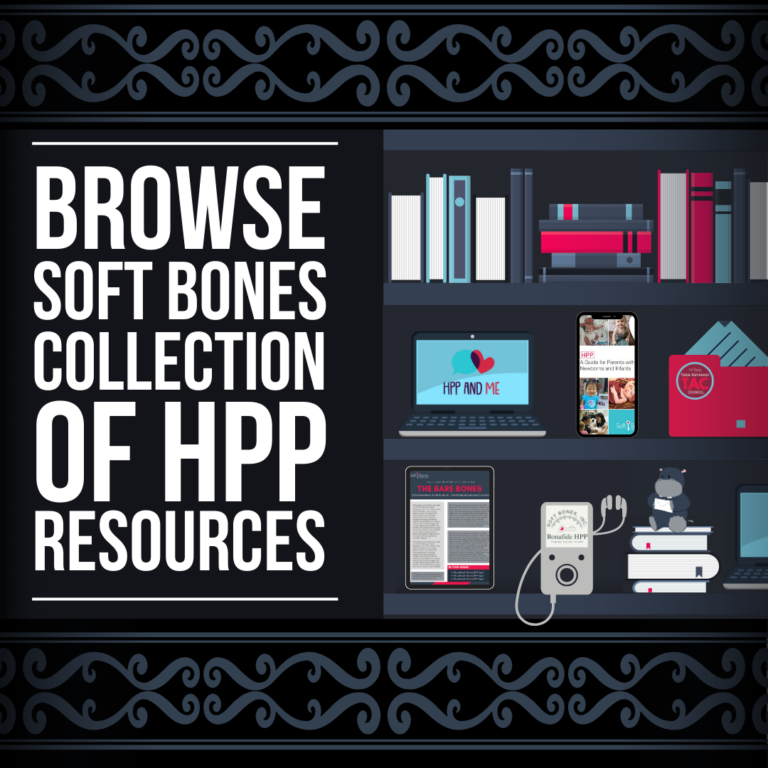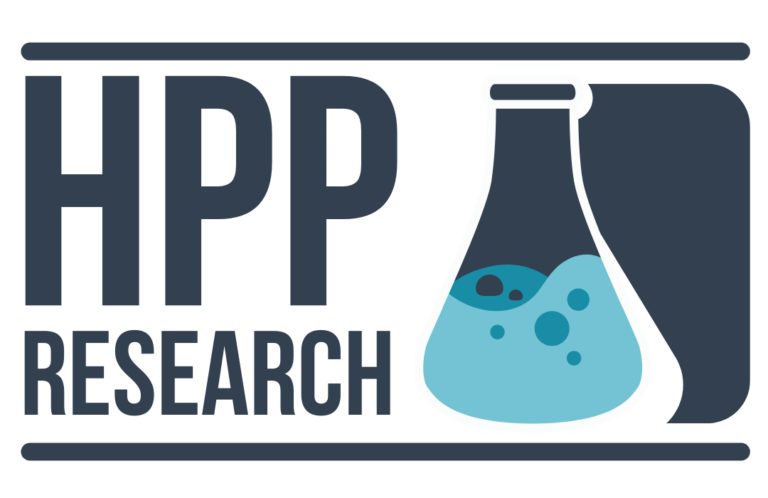HPP Resources
Hypophosphatasia (HPP) is a metabolic disease that can affect more than just your bones. It is caused by a genetic mutation of what is known as the Tissue Nonspecific Alkaline Phosphatase gene (also known as TNSALP or TNAP). Alkaline phosphatase or ALP plays an important role in breaking down chemicals for bone growth and remodeling. Because this enzyme is typically low in HPP, it can alter the chemical reactions that typically happen in the body, causing build up of other chemicals in the muscles and bones that can cause pain and weakness.

List of Resources by Specialty
Signs and symptoms of HPP might manifest differently, even when two people inherit the exact same gene mutation. This makes the predictability of HPP challenging. Because of this, it is important to understand what specialists you may need to see. Your doctor may not have experience with HPP and that is okay. Many patients have successfully educated their doctors to manage their disease. In addition, there is a network of experienced HPP doctors who are willing to work with your doctors to help them better understand HPP. It’s important to understand that having HPP may not change how doctors treat you. However, helping your doctor to become more educated about HPP and to understand where to go if there are questions is a critical role that patients play in managing a care team.
however, there are other specialists you may see, including:
- Clinical Care Coordinator
- Endocrinologist
- ENT
- Immunologist
- Intensivist
- Neuropsychologist (cognitive assessment)
- Neurosurgeon/Neurologist
- Nursing
- Pediatrician
- Pulmonologist
- Psychiatrist
- Radiologist
- Rheumatologist
- Social Worker
- Speciality Nurses/Allied Health
Diagnosis
An HPP diagnosis can be complex because it cannot be based solely on bloodwork and genetic testing. For example, a patient may have low alkaline phosphatase and a genetic mutation and still not have an HPP diagnosis because of a lack of symptoms. However, it’s important to keep a watchful eye as symptoms may arise later in life. For this reason, it is critical to have a doctor who understands what to look for in HPP. Having a doctor who is willing to be educated, or that can consult with an HPP knowledgeable doctor, during the course of care can help produce better outcomes.
A Genetic Overview of Hypophosphatasia
How to Talk to Family About Your HPP Diagnosis
Guide to Understanding HPP Genetic Variations
Disease Education
Whether you’re trying to learn more about HPP, or educate family members, your doctor, or even colleagues or friends, there’s a variety of resources including webinars, podcasts, and brochures to help you achieve your goal.
How to Talk to Family About Your HPP Diagnosis
General HPP Brochure
Food for Thought: Dietary Guidelines for HPP Patients
Parents & Caregivers
An HPP diagnosis can be overwhelming for any parent or caregiver. Families and caregivers have provided feedback that has led us to develop the following resources. Whether it’s a book to read to a child, or dealing with a newly diagnosed child, we hope you will find these materials both informative and insightful along your HPP journey.
What to Know About Your Child’s Rights in School
BrainPOP Cartoon Video
Children's SSI Pamphlet
Transitioning to College With Hypophosphatasia
A Guide for Parents with Newborns and Infants
Journaling My Hypophosphatasia Children’s Book
Understanding the importance of Shared Decisions
My Child Lost a Tooth
Your DNA – A Brief Overview
Talking About HPP
Transitioning to College With Hypophosphatasia: A Guide for Teens on Strensiq
Navigating IEPs & 504s
Treatment
In 2015, the US Food and Drug Administration approved asfotase alfa (STRENSIQ®) for hypophosphatasia. It’s important to work with your doctor to find out whether enzyme replacement therapy is right for you. Since asfotase alfa is a refrigerated injection therapy, there are several resources available to help with travel plans, or to prepare for unexpected power outages or weather events.
Understanding the Roles of PANTHERx Rare and Alexion, AstraZeneca Rare Disease OneSource™
Strensiq Therapy Emergency Information Card
Traveling with Strensiq™ (Asfotase Alfa)
Clinical Trials
There is promising research underway for potential new ways to treat hypophosphatasia and manage symptoms. Click here to learn about clinical trials. New information will be posted below as it becomes available.
Insurance & Access
Soft Bones provides support to the HPP community by helping to navigate barriers to care. This can include insurance and disability challenges, appeals, and other coverage issues. The following materials can be helpful when trying to understand what resources are available to you. This can ensure you are taking all the right steps to access treatment and disability services.
Understanding the Roles of PANTHERx Rare and Alexion, AstraZeneca Rare Disease OneSource™
Children's SSI Pamphlet
Changes to Medicare for 2025 and Beyond (NORD)
Financial Support
Soft Bones offers travel grants for patients who need support traveling to Region Meetings or the National Patient Meeting. However, other organizations provide financial support through scholarships or patient assistance programs.
Check out our financial support page here to explore a quick overview of each program and see if your eligible.
Scholarship Opportunities
Help Hope Live
National Organization for Rare Disorders (NORD)
Emergency Preparedness
An HPP diagnosis can be challenging in an emergency situation, especially when a patient or caregivers is unprepared. Patients on therapy should be aware that enzyme replacement therapy may alter some lab test results. Rescue squads should be alerted to the fact that patients who have HPP may also need special handling as not to further injure them. Emergency room trips can be expedited when the proper information is handy. The following resources can help scenario plan and prepare you for what’s ahead.
Medical ID and Hospital Preparedness
Emergency Supply Checklist
General Information Emergency Card (non-drug)
Traveling with HPP
If you have HPP and use a mobility device or are on treatment, below are some helpful tips that other patients have shared to help make travel a little smoother.
Traveling with Strensiq™ (Asfotase Alfa)
Traveling with a Wheelchair
Travel Preparedness Form
Traveling with HPP - Airline Travel
Dental Health
Oral Manifestations and Treatment of Hypophosphatasia
Dental Health Overview
My Child Lost a Tooth
Mental Health
Research shows that people living with chronic and rare conditions have a higher chance of depression and anxiety. Supporting mental health of patients and caregivers is an important part of what we do at Soft Bones. The ability to connect with other patients and families through platforms such as HPP AND Me helps patients feel less alone on their journeys. Webinars and other resources provide tips and tools to support the HPP community.
Tips For Managing Anxiety
Anxiety and Mental Health Webinar
Join the Emotional Health Forum on HPP AND ME
Physicians
We are always looking to connect new treaters with experienced physicians who have experience with HPP. That’s why we created HPP Connect. This easy-to-use online forum is full of resources, including CME-accredited webinars. It allows for collaborative information sharing, with the ultimate goal of providing better care for HPP patients. Visit our Physician Support page HERE.

Research
Part of our mission at Soft Bones is to continue to support research. We do this in several ways.
Grants- Each year we offer a $25k grant to support research.
Donate Your Data- Patients can download and use the myHPP app to donate their data (which is de-identified) to research to help researchers gain a better understanding of HPP symptoms, which can lead to new treatments.
HPP Registry- We also have an HPP Registry, where patients from around the world can enter information to opt in and learn about new research opportunities.
Soft Bones Scientific Meeting- Finally, Soft Bones also attends medical meetings and hosts its own Global HPP Scientific Meeting to unite researchers, clinicians and industry experts to share the latest information on hypophosphatasia. The Scientific Summaries of these meetings can be found below.
Visit our Research page HERE.


